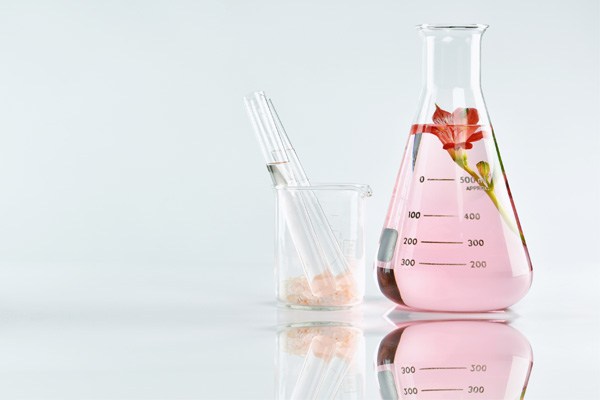
While brands such as The Ordinary or Nip & Fab have done a fantastic job in bringing attention to great ingredients and making consumers more savvy about these ingredients there really is no comparison to a professional, medical grade skin care range. Any product you purchase ‘off the shelf’ whether online or in store i.e without the need for a prescription from a skincare professional are called cosmetic skincare products. Cosmetic means an ingredient that can only affect the surface appearance of the skin. By law cosmetic skincare products cannot contain the same percentage/dosage of ingredients a medical skincare product can as they can cause damage when not used correctly under the care of a professional.
Cosmetic skincare products cannot and will not make a change to the skin underneath. They can make the upper epidermis ‘feel’ nice as they exfoliate dead cells and soften the upper layers but they do not work under the surface to stimulate the fibroblasts which is needed to boost collagen production and thus reduce ageing.

Think of it this way, if the cheaper products available online or in boots/aldi did in fact contain the same ingredients as professional products anyone could pop into boots, use the products incorrectly and give themselves a very bad reaction to them. Do you think the FDA would allow this to happen? Think of the lawsuits that would occur for these skincare brands.
Cheaper products mean cheaper ingredients.
For example products that claim to contain pure Retinol are usually buffered in squalene and triglycerides which means it will sit superficially on the skin and will not be delivered deeper into the dermis to stimulate the Fibroblast cell (which is the purpose of Retinol). AlumierMD (a medical grade brand)’s Retinol is encapsulated for a higher efficacy (this means it can be delivered deep into the skin) with less irritation so essentially the client will get a better result with less risk of irritation. Plus there are other support ingredients in there such as Matrixyl Synthe’6 (the newest formulation of the Matrixyl peptide), hydrating ingredients and smooth ingredients to support the whole structure of the skin.
Some brands even go as far as to use ‘angel dusting’, this means a brand will pop a small drop of a certain ingredient into their product just so they can put ‘contains _____’ on the label. When in fact the amount in the product isn’t actually enough to do anything!

So why are people getting such ‘great results’ from these brands? The simple answer is most people haven’t had access to ‘active’ ingredients before as they would have typically used cosmetic products like Garnier, Clinique, Clarins, la Roche Posay etc.
Like mentioned above brands such as Nip&Fab and The Ordinary are now introducing lower dosages of active ingredients to the public. This introduction of active ingredients to someone who would never have used it before will most certainly provide a slight change in the upper layers of the skin but they could achieve much greater FASTER results with a medical grade product. Think of these brands as a stepping stone to bigger and better.
Some more food for thought is how ethical are these brands? If the ingredients are such a low price point what is their supply chain like? Where are they coming from and who is working in these factories?
These products aren’t essentially ‘bad’ but they do have very clever marketing and can be deceiving to the consumer. We all love a bargain but when it comes to something like healthcare the price isn’t always the best factor to base decisions on.
On the complete opposite end of the scale the most expensive also doesn’t mean the best. There are plenty of designer cosmetic skincare brands charging extortionate prices (we’re talking hundred for a face cream that doesn’t contain any beneficial ingredients) for products that do not even contain any active ingredients. Thick, heavy moisturisers that are designed to feel good when you cake them on but don’t actually DO anything.

The point of this post isn’t to slam any other products or brands but to ask consumers to think about the science when considering products before being swept up in marketing ploys. Our clinic is based on science. We only choose products and treatments that are backed by scientific research and not what is the ‘trendy’ brand among bloggers and influencers that month.

